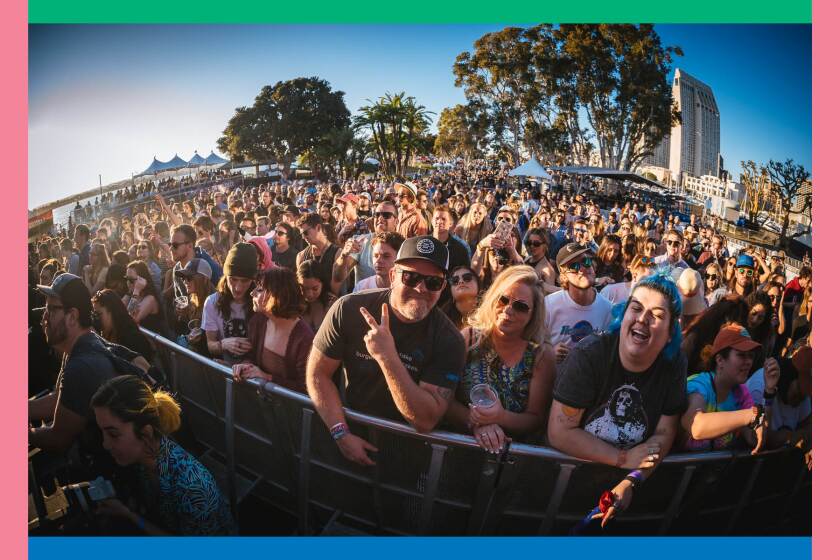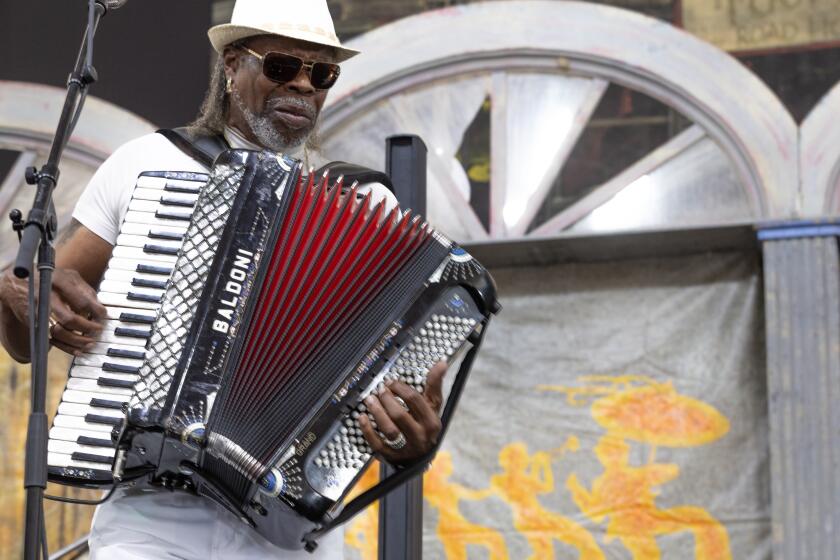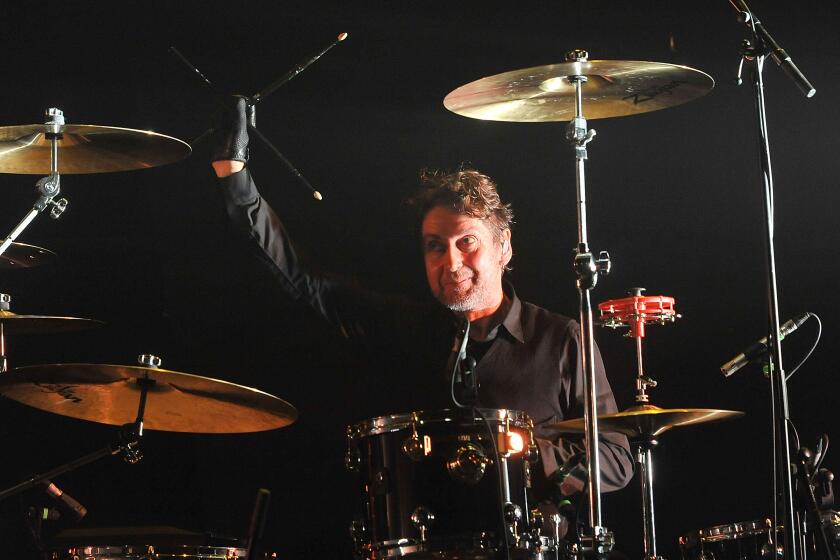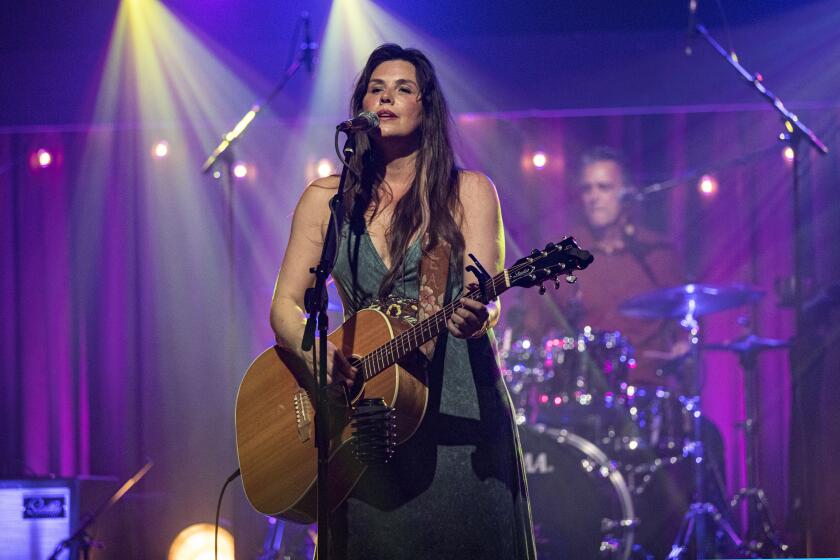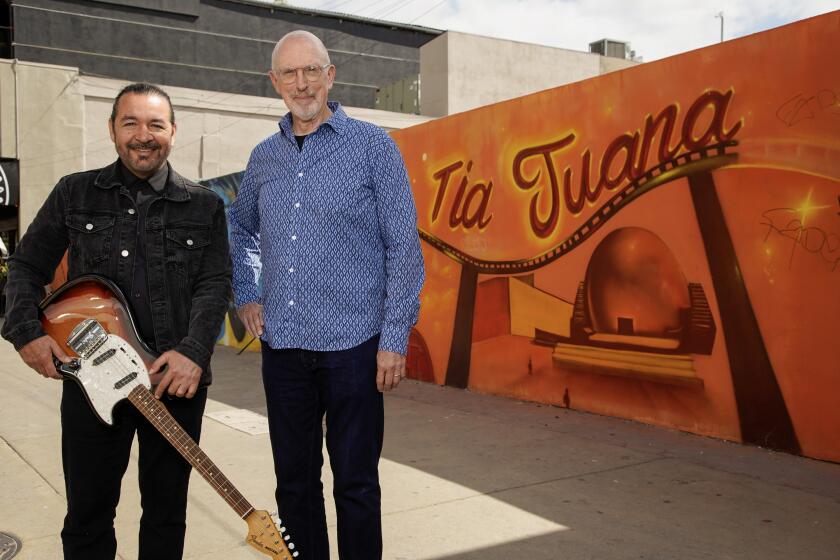Bruno Mars: The complete Q&A interview
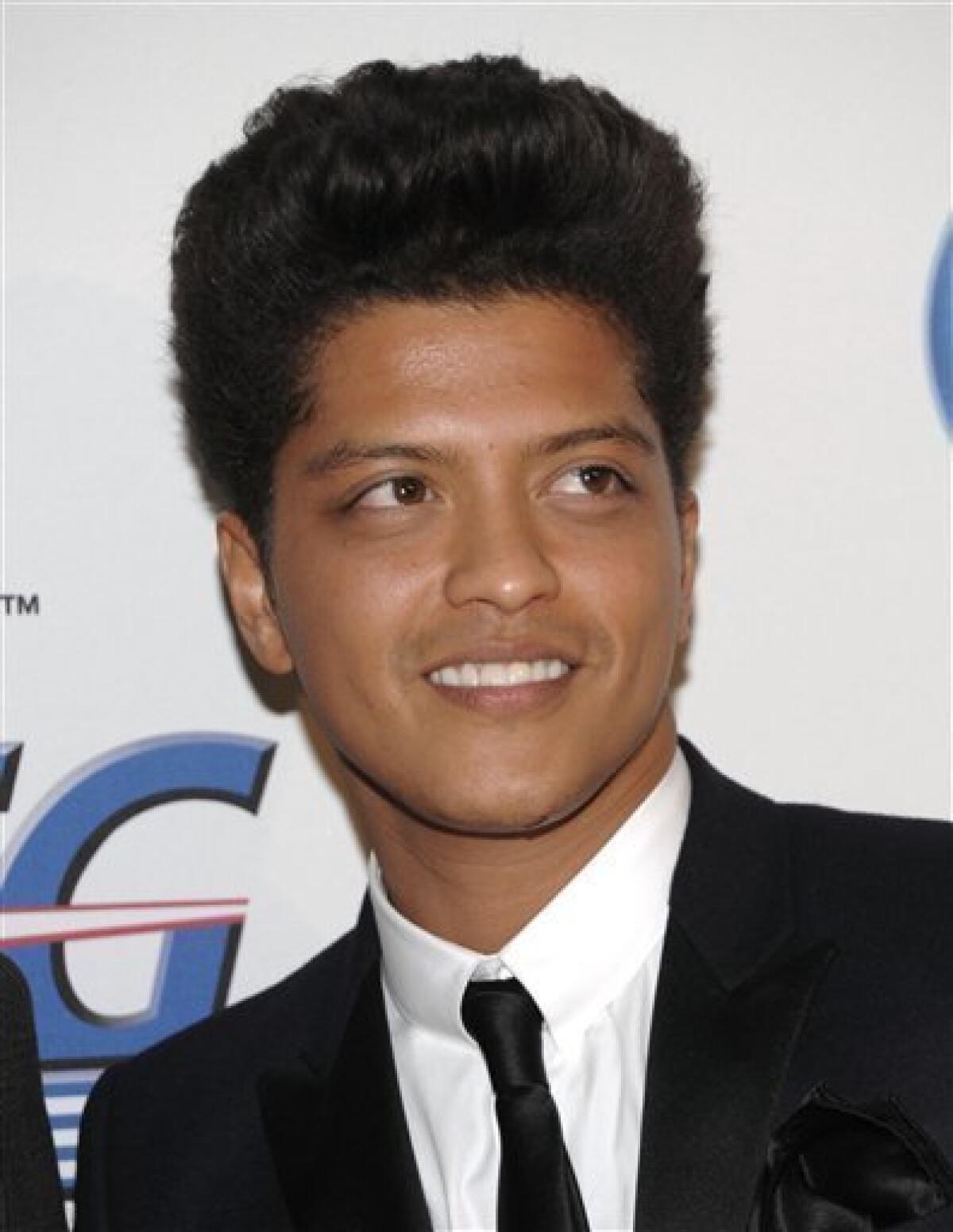
Bruno Mars spoke with the San Diego Union-Tribune from a concert tour stop Seattle on June 9. Here is a transcript of most of that interview. (To read our feature story on Mars in Thursday’s Night&Day, click here.)
QUESTION: I’m wondering if, over the past year, you have done more interviews over past year than you care to recall?
MARS: (laughs) I’ve done quite a few.
Q: Well, I’d like to throw some music-related questions at you that — I hope — you haven’t been asked before.
MARS: Thank god! Bless you heart for that.
Q: To begin with, if you could sit down with one of the following three artists — Bob Marley, Miles Davis or Elvis Presley — who would you pick and why?
MARS: Whoo! That would depend on what day it is. Today, I’d like to talk to Bob Marley. I’d just like to ask him what was his method. Bob is one of the greatest songwriters ever. I don’t know if people understand how powerful his songs are and the simplicity and genius behind them, from ‘Redemption Song’ to ‘Is This Love?’ and ‘I Shot the Sheriff.’ I feel, as a songwriter, it’s one of the hardest things to do — to sit down and say how you feel. He really did that on all his songs and it was just so genuine, and I want to know how he did it.
Q: There’s nothing flashy about your guitar intro to your live version of “Grenade,” but your liquid-sounding Stratocaster (guitar) sound strikes me as a subtle homage to Jimi Hendrix. Is it?
MARS: For sure. He’s the greatest guitar player in the world ... a guy who mastered that instrument. It was talking when he played. And when he did a solo, he made the guitar cry — or made it sound like it was coming from the devil’s amplifier.
Q: I was lucky enough to interview Ray Charles a few times, and I asked him what his criteria was for picking songs to perform that were written by other artists. He replied that he felt he had earned the right to tweak the song musically any way he likes, but that if he can’t connect immediately with the lyrics, he won’t even bother. Your live shows sometimes include parts or all of ‘Billie Jean’ by Michael Jackson, ‘Smells Like Teen Spirit’ by Nirvana, ‘Seven Nation Army’ by White Stripes and the Barrett Strong classic ‘Money,’ which The Beatles later covered. What is your criteria for picking songs by other artists?
MARS: Well, my background is I used to play (in bands at) bars and pubs. We used to cover Nirvana and sing ‘Bilie Jean’ over ‘Smells Like Teen Spirit.’ We did that at the bars and would get everyone going. That was part of the show and we used to do this back in the day to make a buck. Defintiely, I gotta be able to sing it. I grew up with so many different songs that the ones that are fun to play are the ones I want to do.
Q: You grew up performing songs by both Elvis Presley and Michael Jackson. From a musical perspective, what did you learn from each of them?
MARS: Really, it was just their command. The biggest thing is the command they both have on stage... how they can control the crowd and the band. I think there’s a performance of Elvis on the Ed Sullivan (TV) show where he does ‘Hound Dog.’ At the end he slows it down, and — to me — it looked like an improv moment, not like something they rehearsed. It was like he (Presley) saw girls (in the audience) freaking out and said to himself: ‘Watch me slow it down — and then really go nuts.’ And he slows it down at the end and (then) starts his little dance, and he had them. The confidence Elvis and Michael exuded from stage, I’m a fan of.
Q: It sounds like you continue to be a student of music. Are you?
MARS: Of course, absolutely. I take the artist side of what I do very seriously. I feel it’s my job to continue being a student of music if I want to continue being an artist and a producer of other artists. You have to keep filling your mind with other music. You have to be ahead of the curve.
Q: Over the years, I’ve been intrigued by the music that some artists like, or are inspired by, that their fans might really be surprised by. For example, Johnny Cash told me he was a fan of Iron Maiden and Jeff Beck cited the Bulgarian Womens Choir. Do you have any musical inspirations that might surprise people?
MARS: Geez. (pauses) I’m trying to think. I love the Sex Pistols. I’m a big Beach Boys fan and a huge Zeppelin and Queen fan.
Q: A little earlier in this interview, we discussed Elvis Presley and Michael Jackson, two bigger-than-life icons who both had very tragic endings. From a career perspective, do you look at their lives as cautionary tales?
MARS: Sure, sure. There will never be another Michael Jackson, a huge pop star since (the age of) 7. With my being from Hawaii and being very family oriented I don’t really have a fear of a tragic ending. I dont see any tragic ending for me.
Q: How big was it to you to win a Best Male Pop Vocal Grammy Award this year, especially being nominated in the same category that Michael Jackson won for back in the day?
MARS: I was nominated with Michael Jackson! He was nominated for ‘This Is It,’ the song that came out of the movie (of the same name. In a way, I owe it to him. I feel like, if it wasn’t for his music and my upbringing listening to him...I don’t know what kid didn’t listen to him at my age. You aspire to be as great as he is as an artist. I don’t think any artist in pop, rock or hip-hop has ever done it any bigger than him. You know what I mean? He’s the man.
Q: How does your guitar-playing influence your drumming, and how does your drumming influence your guitar playing?
MARS: The drumming helps a lot when I’m producing songs or writing songs. My knowledge of drums helps more in that aspect, (although) I don’t know, man; I’m not great at any of them. The guys we’re talking about, the Hendrix-es, are guitar players. I can put some chords together and maybe write a song, but I’m learning every day. And that’s the fun part.
Q: You are obviously very serious about your music, but I wonder if you could talk for a minute about how important it is to include humor in your songs. For example, there’s your carrot metaphor in ‘Runaway Baby’ and the physically painful extremes you detail in the lyrics to ‘Grenade.’
MARS: Well, I think I don’t take myself too seriously. You know as far as, it’s a fun life. I take my music serious, but I like to have fun. When people meet me, that’s what they get out of it. I want there to be a piece of me in my music, you know? I genuinely believe that’s the secret of all the success that’s happened (for me). Even with (my song) ‘Just the Way You Are,’ it’s a very simplistic love song with words that have been said before in 1,000 other love songs. But people can hear my songs are coming from something real. I mean what I say; I’m not just writing to impress critics or young girls, or older girls. The way I talk is the way I write a song.
Q: The dapper hat you wear is, I believe, a fedora, which was a signature look of Frank Sinatra. Any connection?
MARS: Um, as far as smoothness, maybe. No, I’m kidding. Frank is awesome, (but) I wear a fedora because I cut my hair one day. I used to have a big old Afro and I cut it one day and felt very naked. So I picked up a Fedora and started wearing it.
Q: The old saying about hindsight being 20/20 is usually true. In hindsight, was getting dropped by Motown Records when you were 18 a good thing, even if it really sucked at the time?
MARS: It was probably the best thing that ever happened to me, as far as being a reality check and (learning) what it really takes to break into this (business). I was so young at the time that, at 18, I probably thought being signed (to Motown) was it for me. But you don’t know what the hell you’re doing at 18. And when I got dropped, that’s when I thought: ‘I’ll do everything on my own; I’ll write my own music and produce it.’ I was very frustrated (at Motown) because I was in (recording) studios with producers, trying to explain to them how I wanted these songs to sound. And how can you explain something you haven’t done yet?
Q: You’ve worked with a diverse array of artists, from Sugarbabes, Brandy and Matisyahu to Cee-Lo Green, Travis McCoy and, of course, Germany’s Geri Der Klostertaler. Are you now in a position to turn down offers, and who is on your wish list of people you really want to collaborate with?
MARS: I’d like to collaborate with Alicia Keys and Kings of Leon. I recently did a song with Eminem and would love to do another.
Q: Has that come out yet?
MARS: No, not yet, but soon, I hope. My goal is to find a new artist; I’d love to produce a whole album that I’m not singing on.
Q: Do you have any musical candidates in mind yet?
MARS: (chuckles) I’m just looking; I’m holding auditions. So, if you’re five-foot-five with brown eyes, a cute little thing... I’m kidding!
Q: It’s often been noted that a young musician has their entire life to prepare for their debut album, and then six months or a year to make the follow-up. Have you started work on your sophomore album yet?
MARS: I feel like I know everything I did wrong on this (first) one. Not ‘wrong,’ but things I can do better. The next one is going to be my album.
Q: What can you do better?
MARS: I’ve got to show you. I can show you in music better than I can tell you in words.
Q: In pop music, the public usually see the results — the hit records, the Grammy Awards performances, the concert tours — but not all the work that goes into getting into the spotlight. And not everyone realizes that, even if you have a lot of talent, chances are you won’t make it. Based on what you’ve experienced so far, what have you learned that you think would be particularly valuable for a young musician who looks up to you as a role model and hopes to follow in your footsteps?
MARS: Be in control. Know who you are. And don’t try to be different just to be different.
Q: Did you know that going in, or did you find out along the way?
MARS: (softly) I knew that. I knew that.
Q: Is there anything you’d like to add.
MARS: I love (he adapts his best Will Ferrell-as-Ron Burgundy TV weatherman voice) San Diago...
Q: Come on. You’re just saying that?
MARS: (laughs with delight) ...Which means ‘a whale’s vagina.’
Q: I’m not sure if we can get that in.
MARS: Ah, come on! We gotta!

